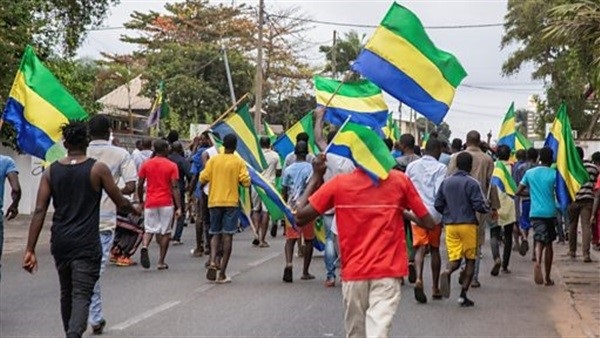Reasons behind Gabon's coup

Military coups as a
phenomenon seeped out into Gabon quickly, from neighbouring countries.
Gabon is located in
Central Africa. It was the scene of an overthrow by the military of President
Ali Bongo on August 30.
The coup brought the
army out of its barracks and onto the political stage. The move was championed
by a group of 12 officers.
Before the
coup
There was a state of
grumbling within the military establishment in Gabon about the ruling regime.
It seems that there was
an organized operation to overthrow the regime, which was manifested in the
fact that a military elite consisting of the Republican Guard tasked with
protecting the president, as well as soldiers from the army and elements of the
police took control of the official media, and announced via Channel One on
Gabonese television the end of the existing regime.
They gave a number of
justifications that prompted them to do this, as well as the formulation of a
new roadmap for the country.
Army
statement
The direct reason that
prompted the military elite in Gabon to overthrow Bongo's regime is evident in
the statement made by an army colonel.
In a statement
broadcast on Channel One on Gabonese television, the colonel said the last
general elections held on August 26 were characterized by a lack of
transparency.
This, he said, will jeopardise
the unity of the Gabonese society and drag the country into chaos and violence.
In October 2018, the
president's health deteriorated after he suffered a stroke.
He then disappeared for
ten months. Despite his continued suffering, Bongo was determined to remain in
power.
The entourage
surrounding the president took advantage of this to carry out illegal actions
and abuse power for personal gain.
Therefore, after the
coup, the Gabonese army arrested a number of presidential advisers on charges
of high treason against state institutions, large-scale embezzlement of public
funds, international financial embezzlement by an organized gang, forgery,
forgery of the signature of the president of the republic, active corruption,
and drug trafficking.
The political situation
in Gabon is ambiguous, as the recent presidential elections resulted in the
continuation of the rule of the Bongo family which ruled for 56 years.
According to the
results announced by the election commission just before the military coup,
Bongo won a third presidential term, having received 64.27% of the vote.
There was anger among
the opposition in Gabon, which questioned the credibility of the election results,
especially in the light of the constitutional amendments approved by the
parliament in April 2023, according to which the president's term was reduced
from seven to five years and the termination of two rounds of voting.
Oil
Despite economic
indicators that make Gabon the fourth largest oil producer in sub-Saharan
Africa, the population density that does not exceed 2.3 million people, and the
high per capita rate of domestic production, this country is witnessing
deteriorating economic and social conditions.
Oil accounts for 60% of
the country's revenues. It is the largest producer of black gold in sub-Saharan
Africa, the seventh largest producer of it in Africa, and a member of the
oil-producing countries bloc, OPEC.





